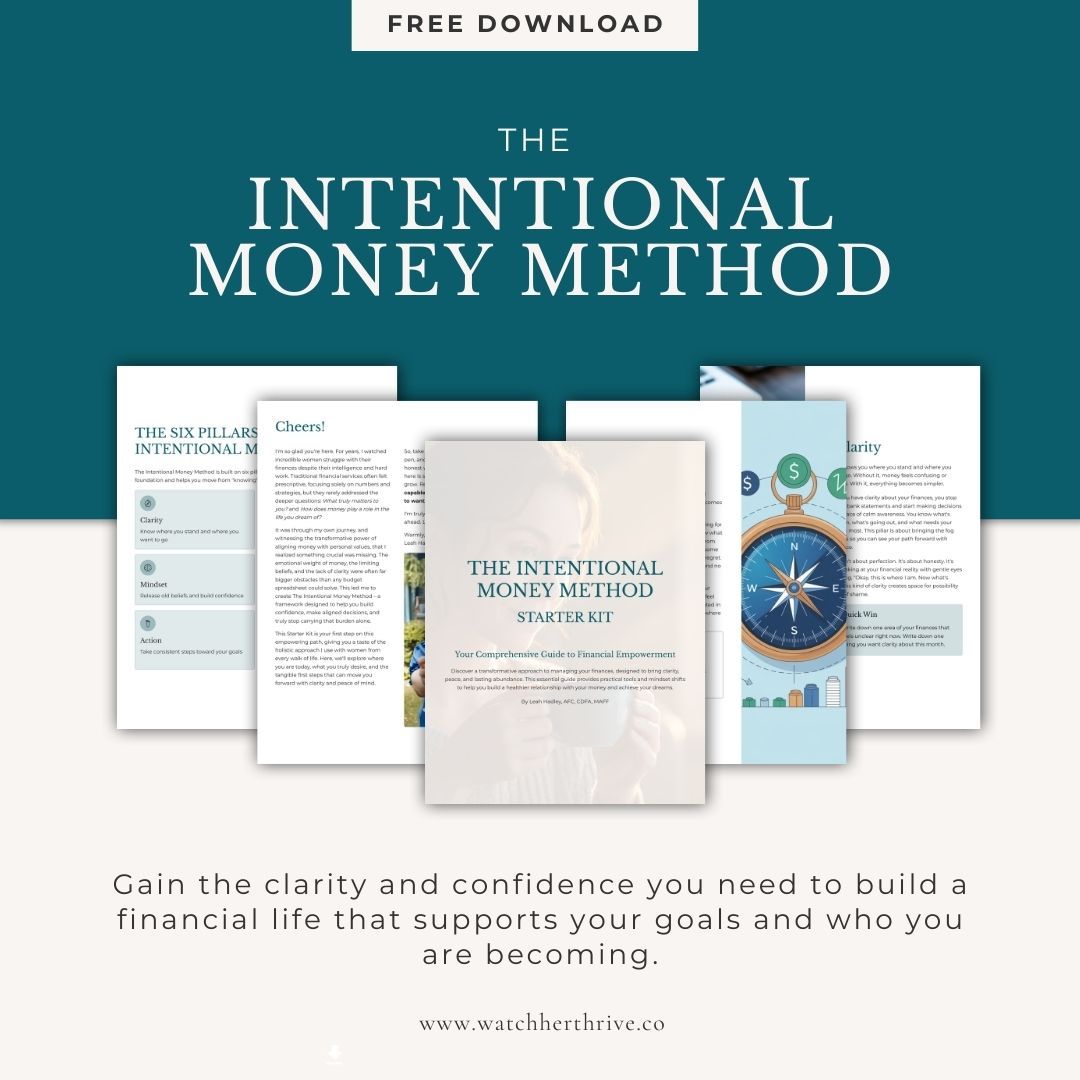How to Finally Stop Living Paycheck-to-Paycheck and Build Financial Freedom

In our last post, Stop Living Paycheck-to-Paycheck, we explored the most common reasons people get caught in that exhausting financial cycle. Today, let’s talk about how to break free from it once and for all—and start putting your money to work for you.
If you’re ready to move beyond surviving and start thriving financially, this guide will walk you through practical, realistic steps to build stability, reduce stress, and create real financial peace.
Step 1: Create a Budget That Works for You
A budget isn’t about restriction—it’s about clarity. When you see where your money goes, you can start directing it toward what matters most.
Start by thinking about your needs, wants, and future goals. A strong budget includes all three.
Determine Your True Income
Your income isn’t your gross pay—it’s what you have left after taxes, insurance, and other deductions. Know this number clearly so you can plan with accuracy.
Add Up Your Monthly Expenses
Review your last one to three months of bank and credit card statements. Write down every expense. Label them as fixed (like rent or car payments) or flexible (like groceries and entertainment). Then mark which ones are essential and which are not.
Review Your Debt and Create a Payoff Plan
List your debts and interest rates. Focus on paying down the high-interest accounts first while maintaining minimum payments on the others. Once one balance is paid off, roll that payment into the next debt. This “snowball” or “avalanche” method builds momentum and confidence as you go.
Set Financial Goals
What are you working toward—debt freedom, early retirement, or simply a cushion so you can breathe easier each month? Naming your goals gives your budget purpose and motivation.
Use Tools to Track Your Progress
Apps like Monarch, YNAB, or even your bank’s online tools make it easier to track your spending automatically. The key is consistency. Check in regularly so you stay connected to your money story.
Step 2: Build Habits That Support Your Plan
Budgeting only works when it becomes a habit, not a once-a-month chore.
Check In Daily (at First)
Spend two minutes each day reviewing your balance and recent spending. Awareness is powerful—it helps you catch habits before they spiral.
Be Realistic
If your budget feels too tight, you won’t stick to it. It’s okay to start small. Progress matters more than perfection.
Find Creative Ways to Boost Income
If your income doesn’t cover your needs and goals, look for small ways to earn more. Maybe it’s a weekend side gig, selling unused items, or finally asking for the raise you deserve.
Step 3: Spend Smarter on Essentials
Even necessities offer room to save—especially when you get intentional about them.
Food
Plan your meals, shop sales, and use coupons strategically. Cooking at home and avoiding waste are two of the easiest ways to save hundreds each month without sacrificing nutrition or joy.
Utilities
Ask your utility provider about budget billing, which averages your payments across the year for predictability. Seal window gaps, unplug unused electronics, and adjust your thermostat a few degrees—these small steps add up.
Clothing
Simplify your wardrobe around a color palette so everything mixes and matches. Buy quality pieces that last. And don’t underestimate the power of thrift or consignment stores—especially for kids who grow fast.
Medicine
Compare prices before filling prescriptions, ask for generics, and check manufacturer discount programs. You might be surprised how much you can save just by asking.
Maintenance
Stay proactive. Regular car maintenance, home repairs, and appliance care prevent costly emergencies later.

Step 4: Manage Debt Intentionally
Debt doesn’t have to control you—but ignoring it will keep you stuck.
Use your budget to see where your money is going and how much you can allocate toward debt repayment. If your budget doesn’t allow for meaningful progress, focus first on stabilizing your spending and income before tackling aggressive payoff goals.
Every dollar of debt you eliminate is a dollar of freedom you gain.
Step 5: Build Your Emergency Fund and Future Savings
Financial peace comes from knowing you can handle whatever life throws your way.
Start small—save even $10 a week if that’s all you can manage. Momentum matters more than the amount.
How to Build Your Emergency Fund
-
Set a clear goal: Start with one month of expenses, then aim for three to six months.
-
Automate savings: Treat it like a bill you pay yourself every month.
-
Save your “found money”: Tax refunds, bonuses, and birthday cash go straight to savings.
-
Cut small expenses: Redirect what you save from canceled subscriptions or reduced bills into your fund.
-
Save your raises: If your income increases, keep your lifestyle the same and bank the difference.
The goal isn’t to be perfect—it’s to build habits that protect your peace of mind.

Step 6: Keep Going (Even When It’s Hard)
Progress might feel slow, but every intentional choice moves you closer to freedom. You may have to make sacrifices now, but those choices compound over time into stability, security, and confidence.
You are capable of building a financial life that feels calm, not chaotic.
If you want support, accountability, and a community of women on the same journey, join us inside The Empowered Sisterhood. Inside, you’ll find resources, reflection prompts, and live discussions that make financial growth feel empowering—not overwhelming.
Related posts:
Stop Living Paycheck-to-Paycheck
15 Best Budgeting & Money Management Tools
Use these 5 Steps to Give Your Budget a Check-Up
A Simple Way to Avoid Food Waste and Save Money on Groceries




